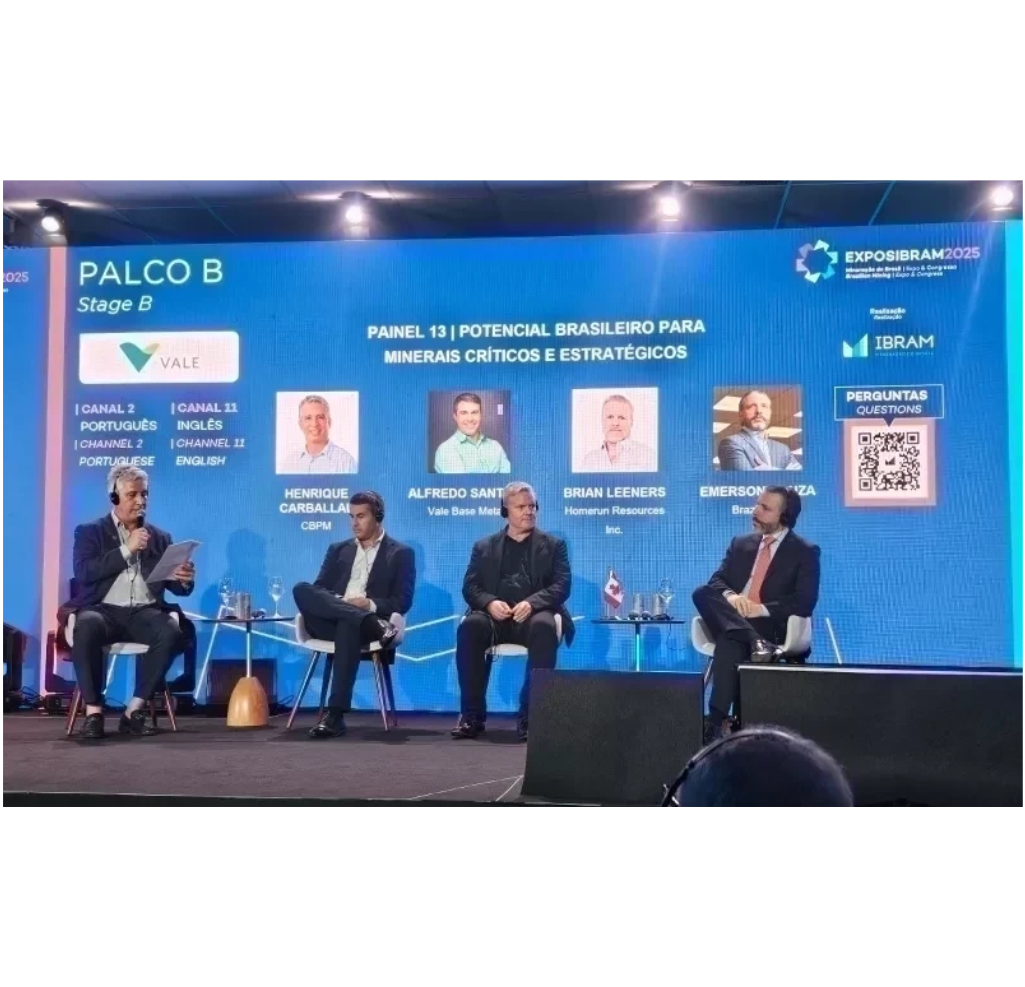Bahia Positions Itself as a Hub for Critical Minerals and the Energy Transition
05/11/2025

Green iron, antimony-free solar glass, and new copper and nickel projects reinforce the state’s leadership.
October 30, 2025
Bahia is increasingly consolidating its position as one of Brazil’s leading hubs for critical and strategic minerals, which are essential for the energy transition and the advancement of low-carbon technologies. This was the central theme of the panel “Brazilian Potential for Critical and Strategic Minerals,” which brought together representatives from companies, government agencies, and mining sector experts to discuss the future of sustainable mining and new drivers of development in the state.
The debate presented an integrated vision of Bahia’s new mineral cycle—from green iron (HBI) production to copper and nickel expansion, alongside technological innovations in solar glass. Together, these projects reveal a strategy that combines low-carbon operations, local value generation, and synergy with the global clean energy market.
One of the highlights was the Green Iron Project, developed by Brazil Iron, which aims to produce Hot Briquetted Iron (HBI) with net-zero greenhouse gas emissions. The product—nicknamed “green iron”—is derived from ultra-high-purity iron ore found in Piatã, Abaíra, and Jussiape, in the Chapada Diamantina region. “This material enables the production of steel without the use of coal, using renewable energy and drastically reducing emissions,” emphasized Emerson das Neves Souza, Vice President of Institutional Relations at Brazil Iron.
Another example of innovation from Bahia came from Homerun Resources. Its CEO, Brian Leeners, presented a new line of antimony-free solar glass, eliminating a toxic and polluting metal commonly used in the industry. Developed in Brazil, the technology places the country among the few in the world capable of producing solar glass with low environmental impact and high performance for the photovoltaic sector. The product meets the growing demand for cleaner materials in the renewable energy supply chain, further reinforcing Bahia’s role in the manufacturing and innovation sectors.
In the base metals segment, the advance of copper and nickel projects was also a key topic. Alfredo Santana, COO of Vale Base Metals, noted that these raw materials are essential for electrification and energy storage—fundamental components in batteries, electric motors, and transmission systems.
Companies operating in the state announced expansion plans and new exploration projects, supported by the Bahia Mineral Research Company (CBPM), which has been investing in geological research and partnerships to add value to local resources.
CBPM President Antonio Caballal highlighted the state’s role as a natural laboratory for low-carbon mining. “Bahia has unique conditions to lead this new phase of mining, combining technological innovation, sustainability, and regional development. Our focus is to turn geological knowledge into economic opportunities for the people of Bahia,” he stated.
Panelists emphasized that the current challenge is to align mining policy, infrastructure, and incentives to attract investment and transform geological potential into established projects. The integration of logistics infrastructure—particularly through the Fiol railway and Porto Sul corridor—was cited as a differentiating factor in enabling these ventures and expanding Bahia’s reach in the global market.
With simultaneous progress in green iron, solar glass, copper, and nickel, Bahia has established itself as a microcosm of Brazil’s energy transition—a state that harmonizes mining tradition, technological innovation, and environmental commitment. “Critical minerals are not just the future of mining; they are the future of the clean economy,” summarized Carballal, capturing the spirit of an event that reaffirmed Bahia’s strategic role in the emerging geopolitics of mineral resources. (Mara Fornari)